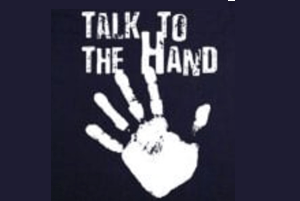Question I recently applied for a Senior Sales position for a medical device supplier, having 15 years of national experience in health industry sales across Australia and New Zealand. The employment hoops they expect me to jump through are bizarre. The employer requires all applicants to pass an outsourced online "assessment test." This is completed in the local office or remotely with a junior HR person monitoring to ensure the applicant is not cheating. I found this approach rather bizarre for 3 reasons. 50 questions in 15 minutes means 20 seconds per question. Some can be answered in seconds, others
Join us for discussion! More employment hoops to jump through
Question
I recently applied for a Senior Sales position for a medical device supplier, having 15 years of national experience in health industry sales across Australia and New Zealand. The employment hoops they expect me to jump through are bizarre. The employer requires all applicants to pass an outsourced online "assessment test." This is completed in the local office or remotely with a junior HR person monitoring to ensure the applicant is not cheating.
I found this approach rather bizarre for 3 reasons.
- 50 questions in 15 minutes means 20 seconds per question. Some can be answered in seconds, others not. The candidate is told to guess rather than waste time on solving the question – not real-world since in business guesses ultimately don't pay.
- Mathematical reasoning questions (no calculators allowed) take quite some time to gather the facts and determine an answer – maybe easy for a Master of Mathematics.
- The expectation to have a vocabulary way outside the normal range is unreasonable. I do not know how the junior HR lady passed the test as her native language is Mandarin. When we chatted some of her sentence structures were not correct. She too admitted having difficulty with the US phraseology used in the questions.
I don't understand how a U.S. company recruiting for a sales job in Australia is using an assessment test where examples are U.S.-centric and not international (e.g., Outside the U.S. all measurements are metric, not miles, yards and inches). And how does the company expect applicants where English is not their first language to score a passing result?
I would be interested to read your comments on this recruitment approach.
Nick’s Reply
This isn't recruiting. It's trolling for meek job seekers. They're not assessing how good a match you are to do this job. They want to see how submissive you are.
More employment hoops
This falls under the category "jumping through hoops for a job," a troubling topic we've discussed before.
The details you provided suggest these issues:
- By definition, these tests are "canned" — one size fits all. While the employer may use testing judiciously, the reality is that HR is often seduced into letting someone else do the hard work of judging a job candidate; in this case, the test vendor. Tests conveniently become the determining factor in candidate selection. That can be a big mistake, especially in an economy where jobs go begging.
- The instruction to not guess suggests the test is scored on a curve. It is designed to make takers fail on many items. So, it's not really about what you know or what skills you possess. It's about how you compare statistically to other test takers. That's not an assessment. It's a comparison. In other words, they're looking for the candidate with the smallest number of "incorrect" answers, more than they're looking for skills and knowledge.
- Using U.S. standards to assess candidates who live — and who will work — in a different country and culture is, well, the wrong answer. In testing, we talk about validity and reliability. A test is valid if it actually measures what it is supposed to measure. How can an Australian be judged on their communication skills when the test items are written using U.S. vernacular? (A test is reliable if you take the test again and again and score the same each time.)
Subjecting yourself to any canned assessment tool is to put yourself at a disadvantage, unless, perhaps, the employer can show you verification of the test's validity and reliability, and unless the employer is willing to discuss your results with you. The American Psychological Association publishes a good selection of articles about the Rights and responsibilities of test takers: Guidelines and expectations.
What employment hoops do you encounter today?
Your reservations about such testing are valid. You should worry about how you are being judged, and whether you're being judged appropriately and fairly.
When an employer uses testing as just one part of a thorough assessment and interview process, it may have a place in hiring. When the assessment you're asked to do raises the kinds of questions you have, the time to ask those questions is before you consent to it.
As I said at the outset, we've discussed tips about how to deal with testing requirements, so I won't repeat them here. But it's been a while since we've enumerated the kinds of employment hoops — perhaps more accurately, obstacles — employers want you to face before they will even interview you.
- Are you willing to walk away from employers whose "hoops" seem unfair or unreasonable to you?
- Have changes in the economy and job market changed the kinds of hoops you've encountered in recent job searches?
- Are employers more or less likely today to forego testing until after interviews?
- How do you handle employers who make such demands?
Let's get up to date on what employers expect of job candidates nowadays. You're much closer to this than I am, so please share your experiences. This is one of those Q&A columns where I expect the Comments section to be more chock full of good advice than anything I've written.
What employment hoops do you face, and what do you do about them?
: :
Join us for discussion! More employment hoops to jump through
Source: More employment hoops to jump through

 I know you're referring to the controversy in the labor market about whether job descriptions that specify a college degree actually require one to do the job. Is the degree really necessary? But let's get underneath that: What can an employer — whether government or commercial — rely on to make a sound hiring judgment?
I know you're referring to the controversy in the labor market about whether job descriptions that specify a college degree actually require one to do the job. Is the degree really necessary? But let's get underneath that: What can an employer — whether government or commercial — rely on to make a sound hiring judgment? You're not alone.
You're not alone. Many years ago I worked for a time at a small, nimble, regional technology company. We were successful because our managers and employees were very smart, hardworking and highly competitive. There were no NCAs. Until a bigger, national company bought us out.
Many years ago I worked for a time at a small, nimble, regional technology company. We were successful because our managers and employees were very smart, hardworking and highly competitive. There were no NCAs. Until a bigger, national company bought us out. You need only one good employer to give you a chance. Sorry if this sounds corny, but that company is a shining light you must search out. You’ve already chosen (wisely) to not hide your past. There’s a shining light out there.
You need only one good employer to give you a chance. Sorry if this sounds corny, but that company is a shining light you must search out. You’ve already chosen (wisely) to not hide your past. There’s a shining light out there. It’s a good thing to encounter a spineless hiring manager who allows HR to run roughshod over the best candidates. Those are the easy ones. You know not to pursue a job with managers like that. Move on.
It’s a good thing to encounter a spineless hiring manager who allows HR to run roughshod over the best candidates. Those are the easy ones. You know not to pursue a job with managers like that. Move on.
 This is a twist on the
This is a twist on the  Congratulations on taking it this far. Now, don’t over-analyze it. Whatever you did in the first two rounds worked very well. Do more of it.
Congratulations on taking it this far. Now, don’t over-analyze it. Whatever you did in the first two rounds worked very well. Do more of it. Thanks for your kind note. You have hit on a very simple but profound idea, and I'll take it to the next step for you. People need to be job hunting all the time. Not heavily, but persistently.
Thanks for your kind note. You have hit on a very simple but profound idea, and I'll take it to the next step for you. People need to be job hunting all the time. Not heavily, but persistently. Ultimately, this is one of the biggest career questions you must face. I find that people go job hunting mainly because they joined the wrong company to begin with. As you realize, money isn't everything. And I know you'll know when the money is right.
Ultimately, this is one of the biggest career questions you must face. I find that people go job hunting mainly because they joined the wrong company to begin with. As you realize, money isn't everything. And I know you'll know when the money is right. I'll summarize what I think are six important considerations that should help keep you out of trouble when giving notice that you're quitting your job. I'll emphasize up front that you must do your own calculation and decide for yourself what is your best course of action.
I'll summarize what I think are six important considerations that should help keep you out of trouble when giving notice that you're quitting your job. I'll emphasize up front that you must do your own calculation and decide for yourself what is your best course of action.